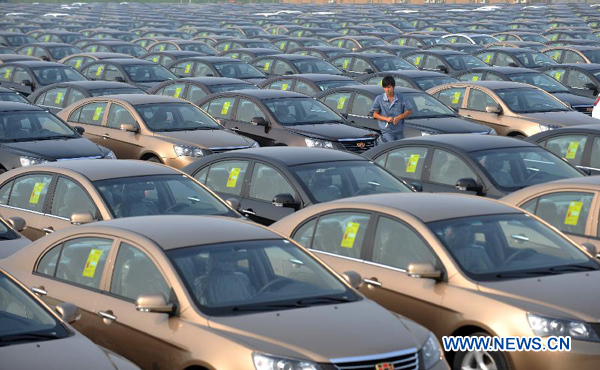As China continues talks on agreement, it needs to improve its legal provisions while seeking understanding on SOEs
China agreed to join the World Trade Organization's Government Procurement Agreement, which is meant to ensure foreign businesses are allowed to compete for a country's government purchase deals, when it became a member of the multilateral trade body in 2001. Negotiations on its GPA membership, which started at the end of 2007, have now entered a crucial stage.

A worker walks among new sedans at Geely Auto Ningbo factory in Ningbo, east China's Zhejiang Province, July 19, 2012. [File Photo / Xinhua]
Judging from the latest developments, the largest disagreement between China and GPA parties such as the United States and the European Union lies in whether and to what extent China's State-owned enterprises will be covered by the agreement. At the same time, the failure to set up a unified government procurement system and the considerable gap with new GPA terms also present obstacles.
China believes its SOEs, which are huge both in their number and their business scale, are in essence different from state firms in the West and thus should not be included in its government procurement agreement. However, the US, the EU, Japan, the Republic of Korea and other GPA parties claim that China's SOEs are heavily controlled or influenced by the government, and do not belong to independent market entities and thus should be listed within the range of government procurement.
Established under different economic systems, China's SOEs and those in Western countries do indeed have huge differences in their nature and scale, as well as the fields they engage in. Compared with Western countries that have gradually opened their government procurement markets to regional or international suppliers in the process of privatization, China has been pushing for a moderate opening-up of its government procurement market under the precondition that the foundation of its established public ownership system will not be rocked. Given that state firms in Western countries are in essence more alike to China's institutions that usually do not engage in profit-oriented economic activities, it is thus unreasonable and also unrealistic to demand China include its SOEs in its government procurement market as Western countries do.